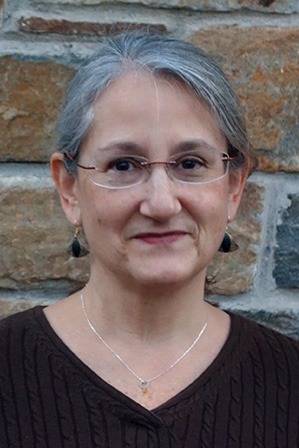When Everything Changed
Letter from the Editor
BY SHAWN DORMAN

We turn our attention this month to one of the United States’ grimmest anniversaries—Sept. 11, 2001. Twenty years later, we ask, where does U.S. diplomacy stand?
The answer isn’t pretty. In fact, it’s rather depressing, and complicated, and very difficult to sum up neatly.
Although this is not a particularly uplifting FSJ edition, there is wisdom in the compelling set of articles here, and hopefully we can take away some lessons.
Learning lessons is not a strong suit of the U.S. government, as evidenced by the wars and interventions over the past decades.
As this issue goes to press, the Taliban have overtaken Kabul—and that question is all the more poignant: Where does diplomacy stand today?
We all remember where we were when news came that the first, and then the second, tower had fallen, the Pentagon was hit and United Airlines Flight 93 went down. In this issue, we start there, with a story of survival.
In “Getting Off the X,” FSO Nancy Ostrowski gives a very personal account of escaping from the Marriott World Trade Center, a hotel situated between the twin towers, on 9/11, and how she persevered that day and all the days that followed. She translates that experience into a go-bag of lessons for how to make it through when catastrophe strikes.
We asked Ambassador Larry Butler to consider the impact of the global war on terror on the practice of diplomacy. He writes that the war fundamentally changed U.S. diplomacy, leading to an overly cautious risk-averse overseas presence in which security and the fight against terrorism pushed other issues aside.
Anthony H. Cordesman picks up the thread in a startling way. In “America and 9/11: The Real-World Impact of Terrorism and Extremism,” he argues that 9/11 did not represent a new fundamental threat to U.S. national security; the Afghanistan and Iraq wars were, he continues, less about terrorism, and more faltering efforts to transform the political and economic systems of those countries.
In “The Proper Measure of the Place,” veteran FSO Keith Mines reflects on his two tours in Afghanistan (2002 and 2012) and offers his perspective on the U.S. efforts in Afghanistan and the repeating patterns of engagement and abandonment.
In “Intervention: Unlearned Lessons, or the Gripes of a Professional,” Ambassador (ret.) Ron Neumann laments the “persistent unwillingness to learn from our own past,” and offers four critical lessons to consider.
Closing the focus section are excerpts from the FSJ Archive that relate to 9/11 and what followed. Over the past 20 years, we’ve regularly shined a light on these issues and featured on-the-ground voices, and it’s clear there is no substitute for these primary sources.
Ambassador (ret.) Ted Osius speaks out on “The Remonstrating Official,” warning that as democracy is in retreat in parts of the world, diplomats must be prepared to raise tough questions, offer dissenting views and speak truth to power.
And for those who might put themselves on the line by reporting on misconduct or abuse of power, two attorneys—Alain Norman and Raeka Safai—offer notes on “Whistleblower Protections: A Nonpartisan Necessity.”
In FS Heritage, Ambassador (ret.) Joe Lake and son Michael team up to tell the story of building the U.S.-Mongolia relationship in “Diplomats Make a Difference: The U.S. and Mongolia, 1986-1990.”
In Family Member Matters, Brianna Hogan writes about “An Old Friend,” puzzling over letting go in times of transition.
In a moving extended Reflection, “Right of Boom: A Bomb and a Book,” Ambassador (ret.) Steve McFarland explains how the separation between life and death can be paper thin.
In President’s Views, Ambassador Eric Rubin urges the administration to work with AFSA to begin making needed reforms and presses the administration and Congress to fill ambassadorial and other top positions without further delay.
And to end on a peaceful note, pink flamingos of Kenya await in Local Lens from Laura Merz.
Please respond to this edition by writing to journal@afsa.org or going to our LinkedIn page.

